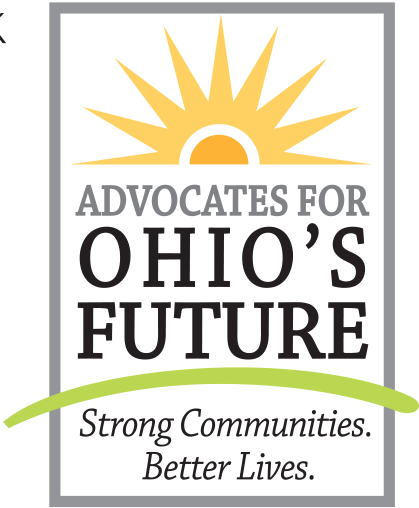It will take many months, if not years, for Ohio’s families and businesses to recover from the coronavirus pandemic. Increases in basic needs assistance and investments in work supports for Ohioans and their families, that last the duration of the economic fallout—not just the public health crisis—will do more to support our recovery and empower our citizens to help themselves as soon as it is deemed safe.
AOF encourages Ohio's legislative leaders to invest in Ohio’s workforce, families and community services to ensure all Ohioans recover successfully from the economic and public health crisis caused by the coronavirus pandemic. A balanced approach to the state budget should examine current tax expenditures and new revenue opportunities to solve Ohio's most pressing needs.
Equity should be an explicit consideration in constructing the budget. Laws and policies have institutionalized racism and bias against marginalized groups. Ohio should allocate resources and services to at-risk populations to ensure an individual’s well-being and success are not predictable by race, class, geography, language, gender, or other relevant social factors.
In 2021 AOF, in collaboration with partner organizations will focus our advocacy efforts to:
Maintain Medicaid eligibility without barriers or cuts so that Ohioans seeking health care and mental health and addiction treatment can continue to access vital services during these multiple public health and economic crises.
Increase access to broadband to help all low-income families afford high-speed internet access and incentivize internet service providers to update and improve their networks in low-income areas so all Ohio families and businesses have the ability to participate in education, telehealth and Ohio’s economy.
Support the immediate, emergency needs of low-income children and families by investing in the core components of the TANF program including emergency assistance, work supports (PRC), food, housing, income-support, and child care and ensure unspent TANF dollars are reinvested into sustainable core programs to increase the security of low-income families and expand job training and work opportunities.
We also pledge to elevate and support the following policy proposals championed by our partner organizations:
Allocate $45 million per year in the biennium to address food insecurity and direct state dollars to Ohio families who need it most. $30 million to support food purchases and $12 million toward non-food essential items that can’t be purchased with SNAP, such as personal hygiene items and household cleaning items.
Allocate additional state emergency rental, mortgage and utility assistance to help families affected by the pandemic remain in their own homes with adequate food, running water, and functioning electricity.
Make the state Earned Income Tax Credit (EITC) refundable to reward work and make a difference for low-income families who in turn, spend the money in their community on basic necessities.
Maintain and expand home and community-based services and supports across all populations and systems and increase access to quality providers in all communities.
Expand eligibility for publicly funded child care from 130% FPL to 200% FPL.

